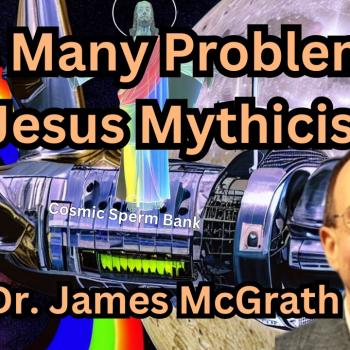Having recently witnessed a proponent of mythicism repeat the same old untruth about “Biblical historians” using different methods than the rest of the guild of historians, I thought it might be time to invite mythicists to do a little experiment.
Pick a figure from ancient history – not Alexander the Great or someone similarly poised to leave tangible evidence behind of his existence from Europe to India, but rather someone that is in important respects more like Jesus in terms of the kind of evidence it is reasonable to expect them to have left behind. Let it be someone you believe actually existed as a historical figure.
What I invite mythicists to do then is approach the evidence for that figure in the same way they do the evidence for the existence of Jesus. Ask the same sorts of skeptical, “what if?” and “what about?” questions that you ask in the case of the New Testament and other early Christian literature.
Check the dates of the earliest manuscripts. If someone cites that author or mentions that person, check the dates of those manuscripts to. Ask whether a particular work might not have been read for entertainment like a comic book.
While it is beyond dispute that there are figures from antiquity who are in some respects better attested than Jesus, I am confident that the methods of mythicism can create uncertainty about them as easily as Jesus. Because, on the one hand, everything in history is open to doubt, although not necessarily reasonable doubt. And, on the other hand, the methods of mythicists are the methods of conspiracy theorists and denialists, and I have yet to see anything that such constituencies cannot doubt, and so there is good reason to think that their methods will work just as well in the case of any historical figure, and not only Jesus.
I realize that this undertaking would require significant time and investigation, but there is really no hurry to finish. This post will still be here. I fully expect that if someone does what I am suggesting here, they will either change their mind about the existence of Jesus – or at least become less dogmatic and prone to ridicule mainstream scholars; or they will become more consistent and be agnostic about ancient history in general, and not treat Jesus differently from most other figures in antiquity.













